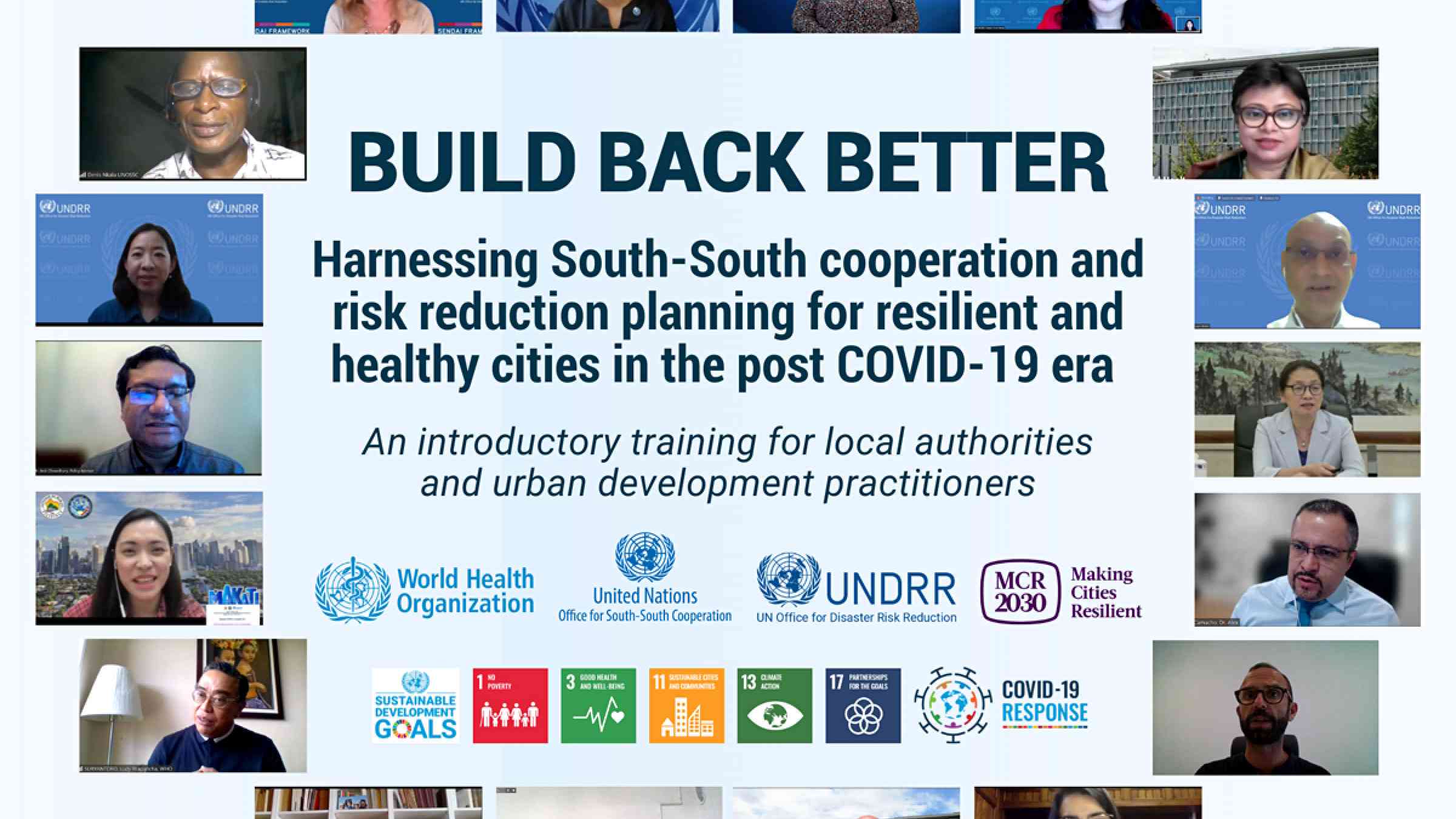Nearly 3,000 local governments and urban resilience practitioners trained on urban disaster risk reduction planning and building back better post COVID-19

Geneva, Switzerland/ New York, USA / Incheon, Korea
According to UN data, today, 55% of the world’s population lives in urban areas, a proportion that is expected to increase to 68% by 2050. COVID-19 is ravaging the world, challenging cities and their citizens, with significant impacts on the social and health infrastructure and the economy. There is still a long road ahead before the pandemic is over. Towards creating more resilient and equitable societies post COVID-19, the training “Build back better: Harnessing South-South cooperation and disaster risk reduction planning for resilient and healthy cities in the post COVID-19 era” was organized between 8 to 29 June 2021.
This four-week workshop was jointly organized by the United Nations Office for Disaster Risk Reduction (UNDRR) Global Education and Training Institute for Disaster Risk Reduction (GETI), the United Nations Office for South-South Cooperation (UNOSSC) under the framework of its Cities Project, and the World Health Organizations (WHO) through its OpenWHO.org team. The training builds on the three agencies’ missions to improve urban risk reduction and resilience, health equity and enhance South-South and triangular cooperation (SSTC).
Four live webinar sessions took place every Tuesday in June 2021. The first session, on 8 June, focused on an introduction to disaster risk reduction (DRR), health emergency response preparedness, and SSTC. The second session, led by UNDRR on 15 June, focused on the utilization of the Public Health System Resilience Addendum (PHA) of the Disaster Resilience Scorecard for Cities towards strengthening the integration of public health issues in local DRR and resilience planning, highlighting also the example of Makati City, The Philippines. The third session, led by WHO, took a deep dive into the issues that impact the way cities and local governments prepare and respond to health emergencies and other risks. The final session on 29 June focused on sharing frontline experiences and practical measures used by national and local authorities in reopening safely and adjusting disaster risk reduction planning and public health measures, featuring experience from the Government of Bangladesh Cabinet Division, Santiago Metropolitan Region of Chile, China Center for Disease Control and Prevention (CDC), City of Milan - Italy, Fujian Provincial CDC – China, and Ministry of Health and Wellness of Mauritius.
Sanjaya Bhatia, Head of the Global Education and Training Institute, UNDRR, pointed out that the COVID-19 pandemic demonstrates that cities need to transit to a “new normal” and local authorities can use this as an opportunity to shape new and innovative policies that strengthen health systems, improve social protection, pursue climate-friendly solutions, and continue the pathway towards resilience.
Overall, the training attracted more than 5000 registrations from 165 countries and territories, with close to 3000 participants joining each session from over 1000 cities in 155 countries. Approximately 35% of the participants were from national and local governments, 24% from academic and research institutes, 12% from CSOs, 12% from private sector, and slightly over 10% from the UN and international government organizations. The gender participation was almost equal. At the end of the course, more than 2000 people responded to the online post-webinar survey. Among these respondents, 98% reported having gained knowledge on public health, health emergency response tools, SSTC, disaster risk reduction (DRR) and that would be applicable to their work, close to 90% would like to be part of the “South-South Cities Clusters” platform and collaborate with UNDRR, UNOSSC and WHO on future activities. 1411 participants completed the final assessments and obtained a certificate of completion.
For more information, contact:
- UNDRR GETI at [email protected]
- UNOSSC at [email protected]
- WHO Health Emergencies Programme at [email protected]

